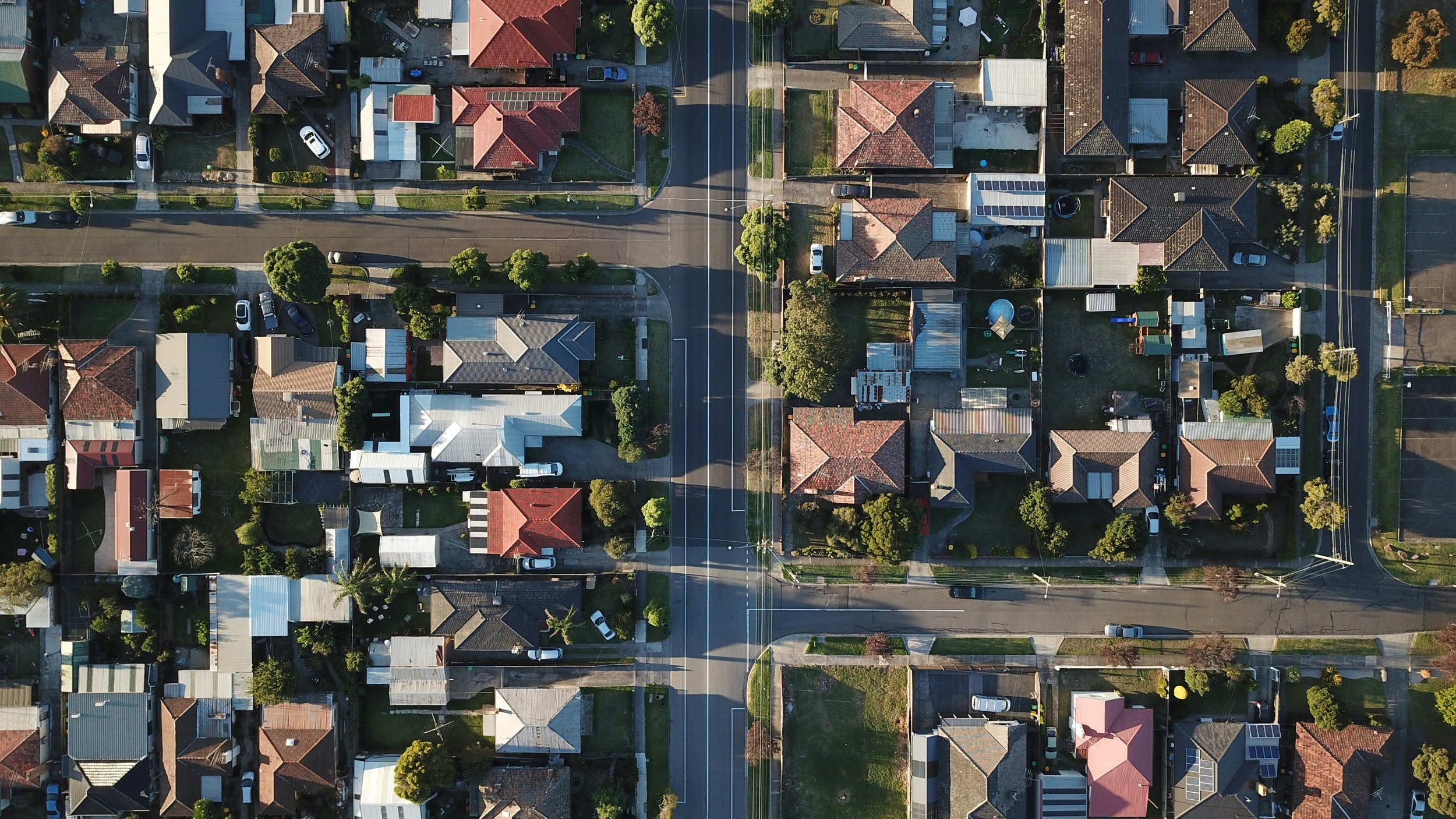Changing the development narrative at the RESCON AGM
The recent Annual General Meeting (AGM) of the Residential Construction Council of Ontario (RESCON) painted a stark picture of the current state of housing in Ontario. Industry leaders like Marlon Bray, Toronto Mayor Olivia Chow, Minister Paul Calandra, and real estate expert Daniel Foch shared insights that echoed a common theme: the housing sector faces significant challenges.

Current Housing Landscape
Marlon Bray spoke plainly about government missteps impacting housing - high taxes and development charges, surging inflation, and climbing interest rates have compounded the problem. Mayor Olivia Chow’s focus on the "City of Toronto Housing Action Plan" highlighted municipal efforts, while Paul Calandra, Ontario’s recently appointed Minister of Municipal Affairs and Housing, discussed aggressive housing targets to combat shortages. But Daniel Foch’s economic perspective underscored a universal agreement: there is a significant housing shortage, and the path to addressing it is not easy.
RESCON’s members, comprised of Ontario’s leading housing developers, are on the frontline of this crisis. They grapple with regulatory hurdles, financial constraints, and public policy and economic challenges that hinder their ability to respond effectively to the housing shortage. The inelastic nature of housing development means decisions made decades ago are profoundly influencing today's landscape, and decisions made today will have an impact for decades to come.
LandLogic – Making Data our Greatest Asset
The LandLogic team has dedicated decades to researching the challenges of urban development, focusing on streamlining the development process. A critical issue identified by this research is data siloing, where vital information is compartmentalized, hindering efficient planning and development for both regulators and builders.
In response to this challenge, LandLogic was born. LandLogic aims to improve decision-making by providing streamlined access to quality data and powerful land insights. LandLogic’s AI-enabled platform delivers crucial information, raising awareness about viable land development opportunities.
By integrating and analyzing data from diverse sources, LandLogic breaks down data silos, offering a comprehensive view of land potential and constraints to ensure municipalities and developers alike have access to reliable information that is crucial for informed urban planning. A shared pool of data can help streamline the planning process and reduce misunderstandings. It is particularly useful for real estate developers to have solid data to back their project proposals during critical stages such as site plan approvals, where well-supported arguments are key to convincing city councils and planning committees that a project should move forward.
Case Study: Streamlining Development with LandLogic
Consider a developer evaluating a plot of land in Toronto. Traditionally, this task involves navigating through a maze of data and regulatory constraints, a process that is not only time-consuming but also prone to errors. LandLogic changes this narrative by shedding light on zoning constraints, environmental factors, and market trends. The result? A faster, more reliable decision-making process that benefits both the developer and the regulator. With comprehensive insights readily available, LandLogic reduces the need for lengthy pre-consultation meetings, saving time for both developers and municipal staff, and resulting in a quicker progression through the important planning stages.
The discussions at the RESCON AGM underline the urgency required to address the housing crisis. By providing actionable AI-enabled insights for real property, LandLogic is on a mission to simplify the complexities of land development and assessment and be a force for good in addressing the growing housing crisis. Find out more at www.landlogic.ai.
RESCON NEWSLETTER: In 2025, artificial intelligence crossed a real tipping point in residential construction. What was once viewed as a futuristic concept became a daily operational tool across site selection, feasibility, and early project planning. Looking ahead to 2026, the firms that succeed will be those that embed AI into everyday thinking, not as a shortcut, but as a smarter way to build.
In 2025, LandLogic advanced property intelligence by standardizing fragmented data across Canada. With expanded coverage across 82 municipalities, upcoming entry into British Columbia, new partnerships, and major product launches, LandLogic strengthened its position at the center of the property intelligence landscape. Looking ahead to 2026, our focus remains on removing friction from property research and due diligence so land-use decisions can move faster and with greater confidence.
During our recent webinar with Teranet on the Basic Zoning Report in GeoWarehouse, realtors and property professionals asked insightful questions about zoning accuracy, updates, commercial uses, and more. We’ve summarized the top questions here so you can quickly understand how zoning intelligence supports better research, marketing, and decision-making.
RESCON NEWSLETTER: Ontario’s multiplex and ADU policies opened the door, but scattered bylaws, unclear eligibility, and slow permitting still stall projects. The article shows how AI can create clear answers, quickly flag eligible lots, and reduce errors early in the process. With modern, AI-enabled workflows, multiplex and ADU projects can move far faster, making gentle density more achievable across the province.
RESCON NEWSLETTER: Canada’s “Buy Canadian” mandate must include digital infrastructure — not just materials. Relying on foreign systems weakens digital sovereignty and coordination in housing data. He calls for investing in Canadian-built, AI-ready platforms like LandLogic to unify zoning, planning, and valuation data. Building “digital land,” is key to building Canada’s future.
PODCAST: This episode explores how intelligent data is transforming real estate. It looks at how turning static zoning and planning records into live, connected intelligence is reshaping how professionals assess sites, speed up approvals, and unlock development potential. The discussion highlights why AI-ready infrastructure is becoming essential to Canada’s property market.
RESCON NEWSLETTER: Canada’s housing crisis isn’t just about supply—it’s about data. In this piece, LandLogic CEO Arash Shahi reveals how fragmented, outdated zoning information is slowing development, driving up costs, and blocking AI-driven innovation. He argues that building an AI-ready property data infrastructure is key to unlocking faster approvals, smarter planning, and real progress on housing supply.
The new collaboration between LandLogic and Teranet is a game-changer. LandLogic’s Basic Zoning Report is providing real estate professionals across Ontario with instant access to critical zoning data. This powerful new capability transforms the due diligence process, offering an efficient and timely way to uncover a property’s highest and best use. Let’s take a closer look at how various professionals can harness this enhanced intelligence to drive success.
We are proud to welcome Hugh O’Reilly as the new Chair of LandLogic’s Board of Directors. A visionary leader with a proven track record in governance, strategy, and innovation, Mr. O’Reilly brings a depth of expertise that will be instrumental in shaping LandLogic’s next chapter.
LandLogic Solutions Inc. is proud to announce a strategic partnership with Teranet Inc., Ontario’s exclusive provider of land registry data and a trusted steward of property intelligence. Together, we are launching a new capability: instant zoning intelligence, embedded directly into GeoWarehouse, a platform used by real estate and land professionals across Ontario.
CMHC’s Housing Design Catalogue is a promising step toward faster, more affordable housing development. But even with pre-approved designs, projects can stall due to zoning restrictions, infrastructure constraints, and regulatory complexity. LandLogic bridges this gap by consolidating critical data; helping developers and municipalities identify build-ready sites in minutes, not weeks.
Residential Multiplex Infill (RMI) streamlines multi-unit development by identifying properties that align with zoning and funding opportunities like CMHC’s MLI Select. LandLogic simplifies this process with data-driven tools for zoning analysis, site selection, and ROI optimization—empowering real estate professionals to make smarter, faster decisions.
2024 has been a year of significant progress for LandLogic as we worked to equip the real estate industry with meaningful tools. This year, we launched innovative solutions that help identify ideal sites, assess property values, and evaluate risks and opportunities—providing the insights needed to streamline real estate projects.
Imagine you’re Drake, one of the world’s biggest stars. You have everything—fame, fortune and a dream home that you had custom built in Toronto’s prestigious Bridle Path neighborhood. But then a massive storm hits, and your mansion suffers significant flood damage. What went wrong?
Ontario faces significant obstacles in meeting housing supply goals, from lengthy development approval processes to fragmented data management, not to mention inflation, mortgage rates, and skilled trades shortages – both on the regulatory side and the industry side. One Ontario - powered by LandLogic - is ready to help on the data and process side, one of the biggest bottlenecks in getting projects approved.
LandLogic is thrilled to announce that it is now powering the One Ontario solution to streamline the development approvals process. LandLogic plays a pivotal role by structuring and harmonizing land data, providing jurisdictional clarity for developers while supporting authorities in making good development decisions.
By providing a comprehensive, automated review of potential sites, AI can help in selecting the most viable options, helping the developer optimize investments and mitigate risks.
Coming soon! The introduction of Zoning Reports to our platform will enhance the ability of our users to make strategic decisions and succeed in a competitive market. Stay tuned for the release and prepare to take your real estate ventures to the next level with LandLogic.
While the budget trends in the right direction for housing, real success hinges on aggressively cutting through bureaucratic red tape and accelerating approval processes. The government must transition from talk to tangible action, focusing sharply on execution.
A recent Bloomberg article pointed out that in 2013, Canada was 13th among 170 nations in meeting basic citizen needs, per the Social Progress Imperative. By 2023, it fell to 39th, significantly due to the housing affordability crisis and reduced productivity, paralleled by a decline in well-being.
As Canada grapples with a housing shortage of 3.5 to 5 million homes, the question arises: could the ambitious architectural mega-projects coming out of the Middle East offer an example for solving Canada’s housing crisis?
By operating as guerilla-like proof-of-concepts, these urban “experiments” can lead to tangible improvements and even potential policy shifts.
There is a pressing need for a balanced approach that respects community concerns while also advancing broader housing goals. This is where technology and data analytics should come into play.
AI for predictive analysis and map-based data technologies to provide additional insights can democratize data access, streamline development processes, and foster better collaboration between developers and regulators.
The disconnect between available land versus developable land requires a strategic, collaborative approach if we are going to transform raw land into vibrant communities.
Being aware of a property's flood plain status or other environmental constraints not only impacts the feasibility of development plans but could also provide significant negotiating leverage.
With LandLogic our goal is to help construction leaders transform greenfield and brownfield sites into thriving communities, respecting the past and embracing the future.
The LandLogic team has dedicated decades to researching the challenges of urban development, focusing on streamlining the development process.
The AECO team has been incubating LandLogic over the past year, and the platform is now ready for beta testing.





























